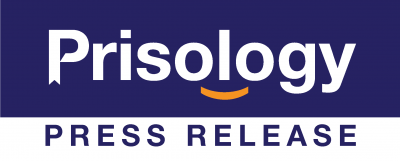Prisology Proposes Tax-Free Fix to Federal Prison System In Testimony Before Colson Task Force On Federal Corrections
WASHINGTON, DC: Far too many offenders return to prison within five years of release—a recidivism rate that contributes significantly to over-incarceration and taxpayer expense. In testimony before the Congressionally mandated Colson Task Force on Wednesday, Prisology—a national non-profit criminal justice reform organization—proposed the REACH Act, tax-neutral legislation that will better educate and prepare federal prisoners for reentry, reduce recidivism and save billions in tax dollars.
In his testimony before the Charles Colson Task Force on Federal Corrections, Prisology National Policy Liaison Joseph Fierros noted that: “Successfully addressing over-incarceration within America’s federal prisons requires more than just accelerated release. Federal offenders must be provided with the tools to help them become productive citizens. The REACH Act does just that.”
The REACH Act—the Renewing Each Affected Community Holistically Act—creates a revenue neutral mechanism for funding vocational and educational programs for federal prisoners. Such programs improve employment possibilities after release, and reduce the likelihood of recidivism.
Modeled after the Crime Victims Fund, the REACH Act funds itself through a series of assessments that are imposed during the criminal justice process. All monies collected are deposited into the REACH Fund. The REACH Fund in turn provides grants to non-profits, community colleges, and other post-secondary educational institutions to fund vocational training programs and college courses leading to undergraduate degrees.
The effectiveness of prisoner educational programs on recidivism is widely recognized. A 2013 Rand Corporation study found that: “Inmates who participate in correctional education programs had a 43 percent lower odds of recidivating than those who did not. This translates to a reduction in the risk of recidivating of 13 percentage points.” Such a reduction would decrease the federal prison population and potentially save billions of tax dollars.
“The REACH Act is essential to ensuring the continuity of funding for federal prisoner education and re-entry initiatives,” says Prisology Executive Director Brandon Sample. “Further, in this era of fiscal restraint, REACH provides vitally needed tools to offenders in a 100 percent revenue neutral, non-taxpayer funded manner.”
A newly created office within the DOJ’s Office of Justice Programs—the Office for Restorative Justice, would administer the REACH Fund. REACH will generate tens of millions of dollars a year for re-entry and rehabilitation programs for federal prisoners. Those funds will be protected by requiring offenders who fail, withdraw, or are expelled from REACH funded programs to reimburse the REACH Fund for their cost of participation.
Prisology’s testimony was well received by the Colson Task Force, a nine-member, bi-partisan, blue ribbon panel established by Congressional mandate that is charged with examining the challenges in the federal corrections system and developing practical policy responses. The insights shared in this public session by Prisology and other stakeholders helped inform the Task Force as it identifies opportunities for criminal justice reform.
Prisology is a national nonprofit organization that was founded in July 2013. Prisology is dedicated to reforming the U.S. criminal justice system through grassroots advocacy, activism, litigation and education. Prisology has offices in Texas and Vermont, and can be contacted through its website at www.prisology.org.

